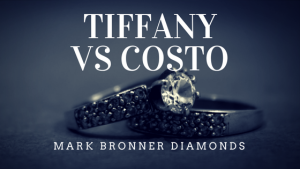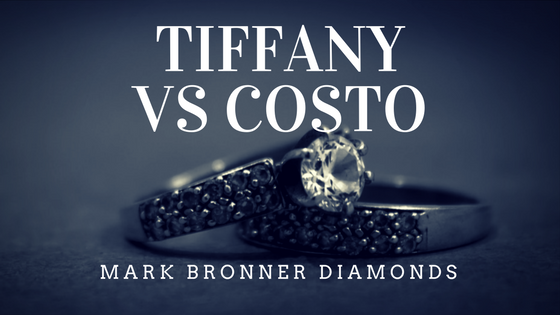 On August 15, 2017, Tiffany Diamonds won a huge case against the bulk food distributor Costo. A US District court ruled in favor of Tiffany, who alleged that Costco had blatantly manufactured counterfeit rings and marketed them under the Tiffany name.
On August 15, 2017, Tiffany Diamonds won a huge case against the bulk food distributor Costo. A US District court ruled in favor of Tiffany, who alleged that Costco had blatantly manufactured counterfeit rings and marketed them under the Tiffany name.
The luxury jewelry company filed their first suit in February 2013 shortly after Valentine’s Day, alleging that Costco had sold upwards of two thousand rings using Tiffany’s copyrighted name and logo as well as the company’s reputation as one of the finest jewelry designers and distributors in the world. Tiffany’s legal team alleged that Costco had used displays with the word “Tiffany” in print and that the sales associates called on the pathos of the Tiffany name as a part of their sales pitch of the diamond-laden jewelry to customers.
Costco, ever cavalier about the whole issue, argued in its defense that the word “Tiffany” was a generic enough word to describe jewelry that the company could claim no such copyright over the name. They drew a parallel between their own marketing and the use of words like Kleenex, Band Aid, and Xerox with a product, not a brand.
Presiding Judge Swain ruled against Costo in 2016.
In total, Tiffany has been awarded a grand total just shy of twenty million dollars in damages from Costco. Initially, the jury decided that five and a half million dollars would cover the damages that Costo inflicted on Tiffany. Subsequently, the judge chose to load on an additional eight and a quarter million dollars to the penalty Costo had to pay as punitive damages. Calling Costco’s defense ridiculous on its face, the judge added the punitive damages because the actions were intentional and harmful.
In a final blow, Judge Swain imposed triple damages totaling 11.1 million dollars plus interest, on top of the 8.25 million that the jury had settled on.
Costo will likely continue to market the same diamond rings in the future, but they have been thoroughly admonished to use clearer language, including clarifications like “Tiffany Style” rather than “Tiffany” as a stand alone adjective.
Copyrights have been a central focus of the US Supreme Court as of late, and Costco said it intends to appeal this particular case as high as it feasibly can. Earlier this year, the Supreme Court ruled on two cases related to what can and cannot be copyrighted. In one case revolving around cheerleader’s uniforms, the court decided that stylistic features like chevrons can, in fact, be copyrighted, which was a huge blow to the knockoff industry and the leeway the Court has generally granted it. The other notably-controversial case dealt with whether racial epithets qualify as grounds for the US choosing to reject a copyright application. In a sweeping victory for the ACLU, the courts ruled that the US government was in no place to decide which words were “too inflammatory” to deny copyrights.
If this Tiffany v Costco case makes it way up the courts, we can expect to see the justices deliberate in a few years down the road.
